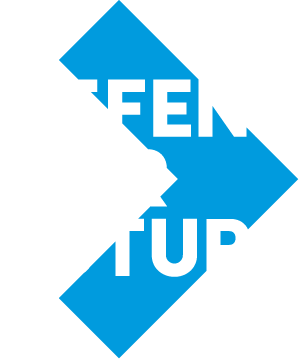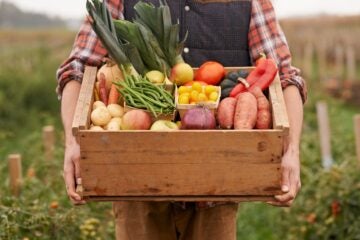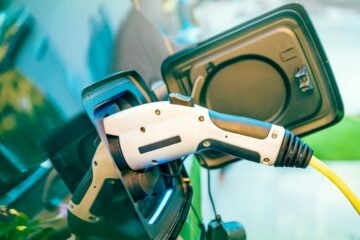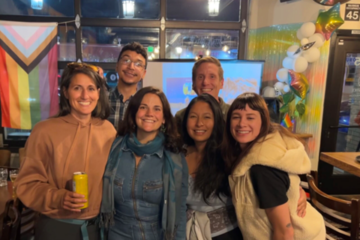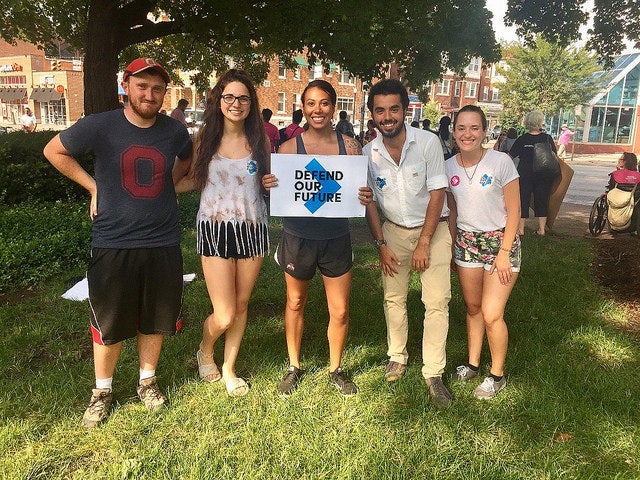Virginia Palacios is a Senior Research Analyst with Environmental Defense Fund’s (EDF’s) U.S. Climate and Energy Program. She researches regulations and analyzes data on air pollution and climate change impacts related to oil and gas development. Palacios also co-leads EDF’s staff Diversity Committee. As a native of South Texas, Palacios is a proud Tejana.
Being at the 2016 National LULAC Convention was like being at home. LULAC, the League of United Latin American Citizens, is the oldest Latino* civil rights organization in the U.S. The convention was a place where I could be with mi gente, people like me, people who want something more for our families, our communities and for future generations.
I felt the warmth of so many diverse cultures coming together: Chicano, Tejano, Boricua, Cubano and many more with ancestry from Caribbean, Central American, and South American countries. There we were, knowing that we cannot be lumped into one category (not Hispanic, not Latino), but knowing that we have been, and knowing that we must work together to find our way out of the social structures that have left those of us categorized as Hispanic or Latino with collectively less prosperity than other groups.
EDF has a partnership with LULAC because Latino communities in the U.S. are often disproportionately affected by climate change, air pollution, and other environmental pollutants, and it’s important to us to address problems where they are felt the most. To illustrate this further,
- nearly 1 in 2 Latinos in the U.S. live in counties with the worst air pollution, and nationally, over 1.8 million Latinos live within a half-mile radius of oil and gas development;
- Puerto Rican children are almost three times as likely to have asthma, as compared to non Hispanic whites; and
- Latino children are twice as likely to die from asthma as non-Latino whites.
This is partially because Latinos are more likely to hold jobs in outdoor occupations that expose workers to air pollution. Latino populations are also faced with lack of access to healthcare, and agencies that don’t provide resources in their language. The list is long, and what is most essential right now is the work that we are undertaking together to remedy these problems, especially as they affect our communities.
I went to the LULAC convention to speak on a panel hosted by Green Latinos about climate pollutants like methane and carbon dioxide, how climate change can exacerbate asthma, and how Latino populations are disproportionately impacted by health issues like asthma that are related to our climate and environment. And because the first step for taking action is awareness, I shared tools like EJSCREEN and the Oil and Gas Threat Map, which anyone can use to see how and where pollution affects their communities.
The room for our panel was packed. As people stood in the back of the room and more attempted to shove in, I shared more than data. I told stories about the year of Texas’ historic drought, which was the year my dad sold all the cattle on our family ranch. He wasn’t the only rancher who had to do that –nationally, there was an estimated $10 billion economic impact in the agriculture sector alone. That year, temperature extremes were connected to manmade climate change, which doubled the chance that heat waves would occur. I told this story because I believe it is important for each of us to communicate how climate change and air pollution are affecting us, our families, and our communities.
When we tell our stories, we start to notice broader trends, the data becomes real, we gain traction. Even though Latino populations are heavily impacted by climate change and air pollution, we don’t see ourselves at the forefront of the movement. We have to change that, and we have to tell our stories. Our stories will be as varied as we are: Chicano, Tejano, Boricua, Cubano, and many more. Together our stories will make up the narrative of nuestra gente, of the people who want something more for our families, our communities and for future generations.
